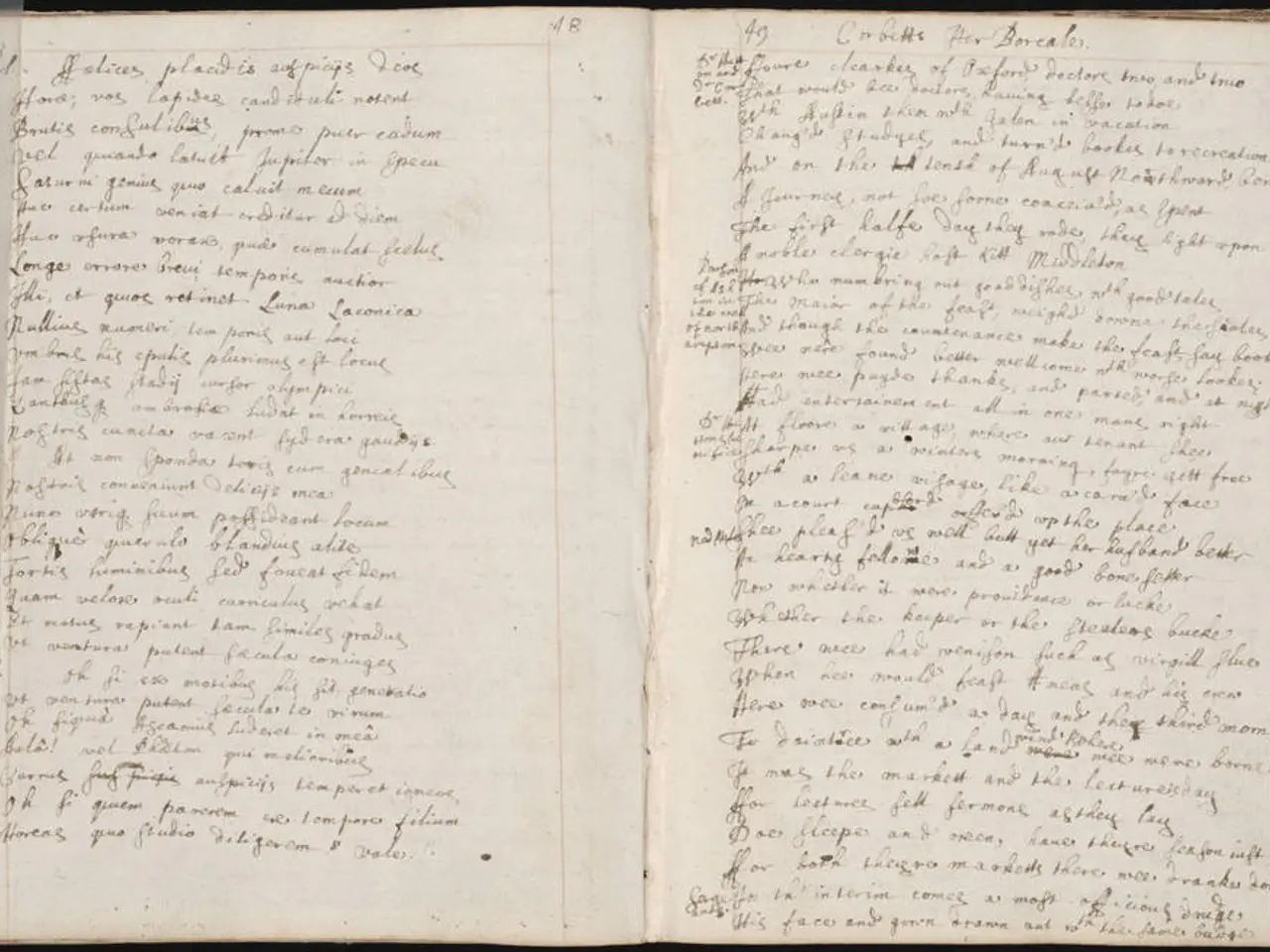Guide for New Screenwriters: Achieving Success with Brief Film Scripts
In the world of short filmmaking, every word, every scene, and every character counts. Here are some essential tips to help you write a captivating short film script that leaves a lasting impression.
First and foremost, have a clear, concise concept focused on a strong idea or emotion. Develop vivid characters quickly, ensuring they are unique and multi-dimensional, rather than relying on stereotypes. A compelling hook immediately grabs the audience's attention, while a strong ending leaves a lasting impact.
To maintain a tight narrative, avoid unnecessary side plots or characters. Instead, focus on the core story and let it unfold through visual storytelling. The setting should complement the narrative, and visual symbols can convey complex ideas subtly.
Dialogue is a powerful tool in revealing inner emotions and vulnerabilities, making characters feel real and relatable. Use it sparingly, and ensure every word serves a purpose. Build tension and create drama, but remember that what's left unsaid often speaks volumes.
Characters' actions and decisions should reveal their personality and growth. Let visual elements and subtext carry a significant portion of the narrative weight, and allow characters to convey their emotions and thoughts through actions and expressions as much as their words.
Use close-ups to capture emotions and draw the audience's attention to important details. Wide shots can establish the setting and context and highlight a character's isolation or insignificance. Experiment with unique camera angles to convey specific emotions or perspectives.
Nature and weather can symbolize various emotions in visual storytelling, while everyday objects can take on metaphorical significance. Drawing parallels between characters or events can highlight themes and add richness to your story.
To refine your core story and characters, prepare by creating an exposé and treatment before the full script. Exchange scripts with fellow writers for honest, detailed critiques, and participate in scriptwriting workshops where peers review and provide constructive criticism.
Seek feedback from industry professionals who can offer insights based on their experience. Consider professional script coverage services like Greenlight Coverage for in-depth analysis. Remember to check for consistency in tone, character behavior, and narrative structure.
Lastly, maintain a natural rhythm and flow in characters' speech, and show how characters change over the course of the story through their language, tone, and the subjects they discuss. Ensure the story flows smoothly without unnecessary scenes or slow sections.
By following these guidelines, you'll be well on your way to writing a short film script that impresses at first glance. Happy writing!








